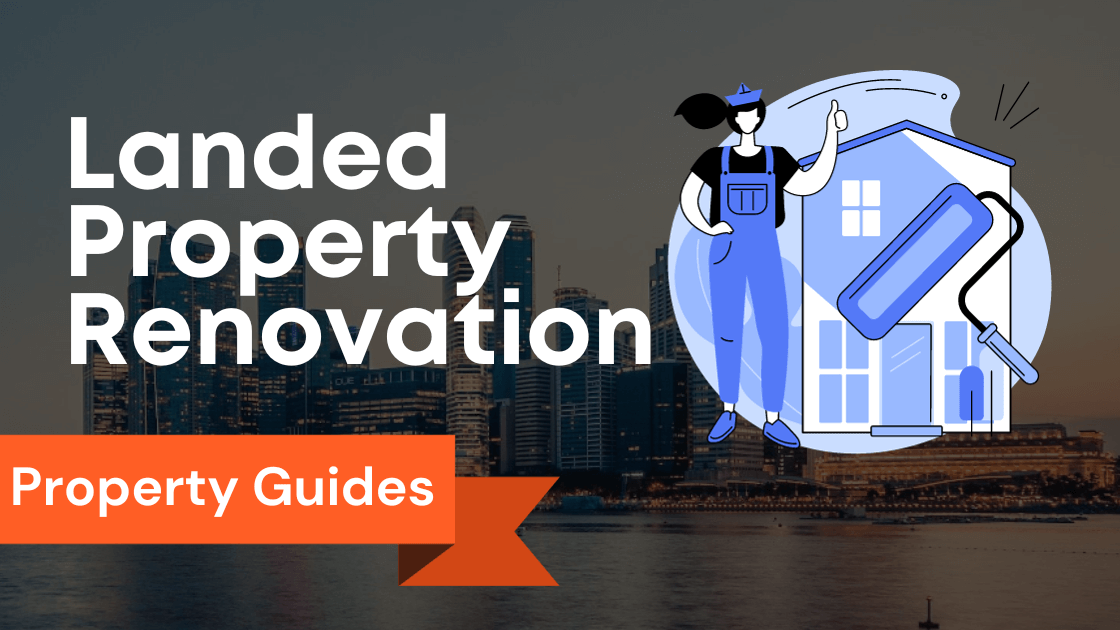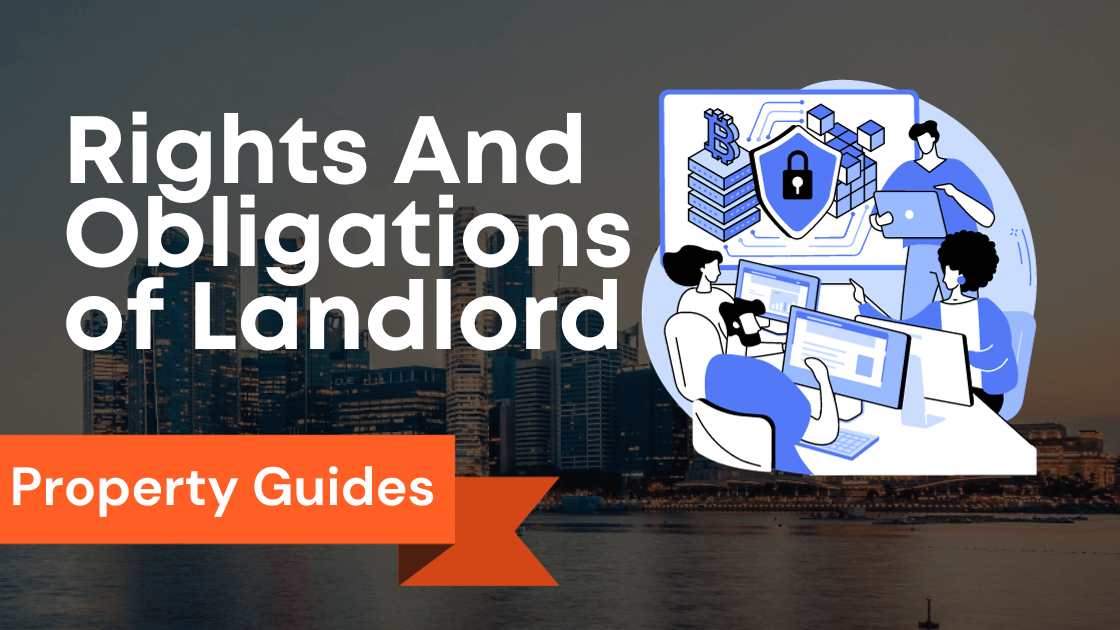Landed Property in Singapore
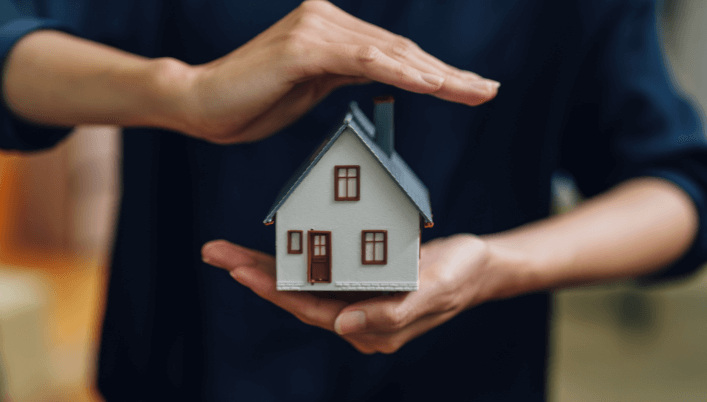
Landed property maintenance in Singapore is highly sought after by property owners due to its exclusivity and unique features.
From detached houses to strata-titled developments, there are various types of landed property available to cater to different lifestyle preferences.
In this article, we will explore what landed property is, the benefits of buying such properties, and the different types available in Singapore.
Living in a landed property in Singapore offers a unique experience for homeowners.
These properties are highly sought after due to their exclusivity and privacy.
The annual value of landed property is an important factor for homeowners, as it determines the property tax rate.
Homeowners also need to be aware of the need to maintain drain gutters around their property and the potential higher risk of fleas in these types of homes.
When it comes to financing a landed property, homeowners have the option of choosing between a loan without a lock-in or a loan with a lock-in period.
This gives homeowners the flexibility to pay for what they need based on the structure of their home.
However, it’s important to note that maintaining multiple rooms on different levels may require additional cost and effort.
Despite these considerations, many homeowners believe that the national environment and community in landed properties outweigh the potential fees and costs, as they offer a sense of security and ample living space.
What is Landed Property?
Landed property refers to residential properties that come with a piece of land.
Unlike condominiums or apartments, landed properties provide homeowners with a sense of privacy, space, and freedom.
Structural elements such as gardens, outdoor spaces, and driveways are common features of these properties, offering residents a luxurious living experience.
Landed property is favored by those who value their privacy and enjoy having ample room for their families and activities.
Benefits of Buying Landed Property
There are several benefits to buying landed property in Singapore.
Firstly, security is a key advantage as these properties are gated or guarded, providing residents with a greater sense of safety and peace of mind.
Additionally, owners have more control over the maintenance and renovations of their property, allowing them to customize and personalize their homes according to their preferences.
Long-term maintenance is also a consideration, as owning landed property gives owners the flexibility to maintain and upgrade their homes over time.
Landed properties cater to various lifestyle preferences, making them a popular choice among those seeking exclusivity and freedom.
Types of Landed Property in Singapore

Singapore offers a variety of landed property options to cater to different needs and budgets.
Detached houses are standalone properties with no shared walls, offering the highest level of privacy and space.
Semi-detached houses share a common wall with the neighboring house but still provide ample space.
Terrace houses are arranged in a row and share both side walls with neighboring houses.
Townhouses combine the privacy of landed property with the amenities of condominium living.
Bungalows are large, luxurious properties often associated with prestige and exclusivity.
Additionally, strata-titled developments are a unique type of landed property where homeowners own both a unit and a share of common areas within a development.
http://www.youtube.com/watch?v=yFf1RNxRI5g
In conclusion, landed property in Singapore provides property owners with an exclusive and luxurious living experience.
With various types available and the freedom to customize and maintain their homes, landed property remains a popular choice for those seeking privacy, space, private property, storey, potted plants, and a unique lifestyle.
Key Takeaways
- Landed Property in Singapore: Landed properties in Singapore offer exclusivity, privacy, space, and freedom. They come in various types to cater to different lifestyle preferences.
- Benefits of Buying Landed Property: The advantages of owning landed property include security (gated or guarded properties), control over maintenance and customization, long-term maintenance flexibility, and catering to diverse lifestyle preferences.
- Types of Landed Property in Singapore: Singapore offers various options, including detached houses, semi-detached houses, terrace houses, townhouses, bungalows, and strata-titled developments.
- Buying Landed Property in Singapore: When purchasing landed property, consider building type, ground floor amenities, financing options, and entrances. Financing options include mortgage loans, personal funds, and private bank loans.
- Landed Property Ownership Costs: As a homeowner, you’ll be responsible for maintaining the property’s exterior, landscaping, and shared facilities. Some properties may have monthly maintenance fees for common areas.
- Neglected Issues When Buying Landed Property: Be vigilant about structural issues, termite damage, and leaky roofs. Regular inspections and preventive measures are essential.
- Upgrading to a Landed Property: Reasons to upgrade include more space, privacy, and customization. The upgrading process involves submitting a building plan, and costs include major renovations and ongoing maintenance.
- Types of Landed Property in Singapore: Different types of landed properties, such as detached houses, semi-detached houses, terrace houses, townhouses, and bungalows, have specific maintenance considerations.
- Conclusion: Owning landed property in Singapore comes with maintenance costs. Additional factors to consider include pest control, security, financing options, and insurance for unforeseen events.
Buying Landed Property in Singapore

Buying a landed property in Singapore is an attractive option for those seeking exclusivity, space, and a unique lifestyle.
However, before making such a significant investment, there are several factors to consider.
This article will explore the things to consider before buying landed property, the financing options available, and the ownership costs associated with maintaining these properties.
When it comes to buying landed property in Singapore, potential buyers must navigate the dynamic and competitive private property market.
While high-rise apartments and condominiums are prevalent in the city-state, there is a subset of buyers who prefer the exclusivity and privacy that comes with owning a landed property.
These houses are often set away from the hustle and bustle of the city or even nestled underground, providing a quiet and serene living environment.
Although Singapore is known for its compact size, buying landed property means having more space both inside and outside of the house.
While the cost may be higher, it offers flexible living arrangements, as owners only pay for the space they truly need.
It is worth noting that having multiple stories may involve climbing stairs or walking, especially in larger houses.
Additionally, maintaining different rooms on various floors might require more effort.
However, it is important to consider the cost savings in terms of shared expenses, as condominium fees do not apply to landed properties.
For those seeking a unique living experience with more control over the structure of their home, buying a landed property in Singapore could be the ideal choice.
Things to Consider Before Buying Landed Property
When purchasing a landed property, there are a few crucial considerations to keep in mind:
Building: Depending on your preferences, you may want to consider the type of building that suits your lifestyle.
Options range from detached houses to townhouses, each offering different levels of privacy and space.
Ground Floor: Some landed properties have the option of having rooms or amenities on the ground floor.
This can be a great convenience, especially for elderly family members or those who prefer avoiding stairs.
Loan: Financing the purchase of a landed property can be a complex process.
It’s important to consider your financial stability and assess your eligibility for a mortgage loan.
Potential Entrances: If you value convenience, you may want to evaluate the number and location of entrances in the property.
Consider factors such as ease of access and security when making your decision.
Financing Options for Landed Property
To finance the purchase of a landed property, several options are available.
These include:
Loan: Most buyers turn to financial institutions to secure a mortgage loan.
Evaluate different loan packages offered by banks, considering factors such as interest rates, down payment requirements, and processing fees.
Funds: If you have substantial savings or investments, you may choose to finance the purchase using your funds.
This option can offer greater flexibility and potentially save on interest costs.
Private Bank Loan: For high-net-worth individuals, private bank loans provide a more personalized and tailored approach to financing.
Private banks often offer unique benefits and services that cater to the specific needs of their clients.
Landed Property Ownership Costs
When owning a landed property, there are ongoing maintenance costs to consider.
These include:
Maintenance Costs: As a homeowner, you are responsible for maintaining the property’s exterior, landscaping, and any shared facilities within a development.
This may include regular painting, gardening, and repairs.
Monthly Maintenance Fees: In some cases, landed properties may be part of a gated community or strata-titled development with shared amenities.
These developments often have monthly maintenance fees to cover common area upkeep and services.
Maintenance Schedule: Establishing a regular maintenance schedule is important to keep your property in good condition.
This may include inspections, servicing of utilities, and regular checks on the structural integrity of the property.
Maintenance Issues: Owning a landed property also means being prepared for potential maintenance issues that may arise.
It’s essential to have a contingency fund in place to address unexpected repairs or damages.
http://www.youtube.com/watch?v=u0DdTjPHd0c
In conclusion, buying a landed property in Singapore offers a luxurious and exclusive living experience.
However, it’s crucial to consider various factors before making your purchase, such as building type, financing options, and ongoing ownership costs.
By carefully evaluating these aspects, you can make an informed decision that aligns with your lifestyle and financial goals.
Neglected Issues When Buying Landed Property
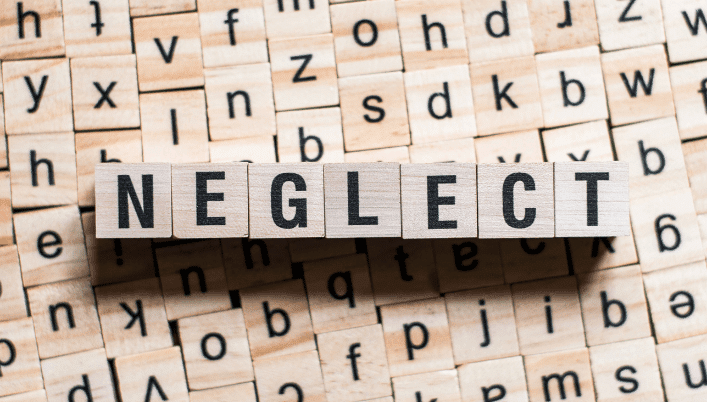
Buying a landed property in Singapore offers exclusivity, space, and a unique lifestyle.
However, before making such a significant investment, there are several neglected issues to consider when it comes to maintenance.
This article will explore structural issues, termite damage, and leaky roofs, and provide tips to address these concerns.
Structural Issues
Structural issues can lead to costly repairs and compromise the overall integrity of your landed property.
It is essential to thoroughly assess the structural elements before making a purchase.
Hire a professional building inspector to identify any maintenance issues or potential problems.
Regular maintenance checks are crucial to ensure the stability and safety of your property, and compliance with building control regulations.
Termite Damage
Termite infestations can cause significant damage to your property if not addressed promptly.
These pests can compromise the structural integrity of a house and lead to costly repairs.
It is important to conduct regular termite inspections and take preventive measures to avoid infestations.
Engaging a professional pest control company can help mitigate the risk and provide ongoing protection for your property.
Leaky Roofs
Roof damage, including leaky roofs and clogged gutters, can cause water intrusion and lead to further maintenance issues.
Regular roof inspections and maintenance are essential to avoid costly repairs and potential health hazards.
Keep your roof in good condition by addressing any maintenance issues promptly, such as replacing damaged tiles, clearing debris from gutters, and conducting necessary renovations to prevent water leaks.
In conclusion, when buying a landed property in Singapore, it is important to consider neglected maintenance issues such as structural problems, termite damage, and leaky roofs.
Regular inspections and preventive measures can help ensure the long-term integrity of your property and minimize maintenance costs.
By addressing these issues proactively, you can enjoy a luxurious and worry-free living experience on your landed property.
Upgrading to a Landed Property
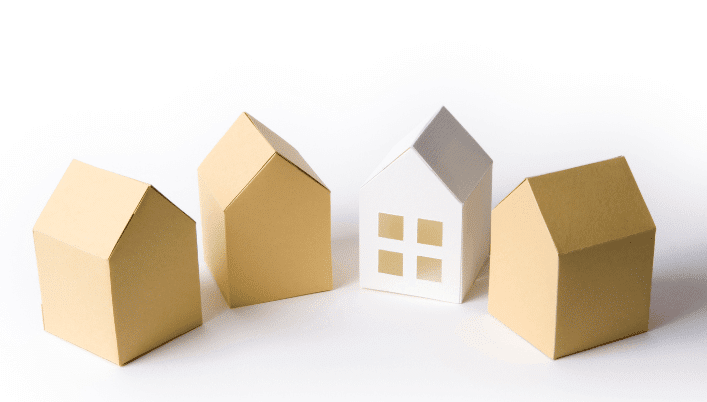
Are you considering upgrading to a landed property in Singapore?
This decision offers exclusivity, more space, and a unique lifestyle. Singapore private property market away or underground shared cost, pay for what you need may have to walk structure of your home, maintaining rooms on different fees may be higher.
However, before making such a significant investment, there are several important factors to consider, including the costs and maintenance involved.
In this article, we will explore the reasons to upgrade, the process of upgrading, and the costs associated with owning a landed property.
Reasons to Upgrade to a Landed Property
There are several reasons why individuals choose to upgrade to a landed property.
One of the main reasons is lifestyle preference.
Landed properties offer more privacy, space for outdoor activities, and the ability to customize your home to your liking.
Additionally, living on a landed property can provide added peace and tranquility away from the hustle and bustle of city life.
How to Upgrade to a Landed Property
To upgrade to a landed property, there are several steps you need to follow.
First, you will need to submit a building plan to the relevant authorities for approval.
This plan outlines any renovations or additions you plan to make to the property.
Once the plan is approved, you can proceed with the renovation period, which can vary depending on the scope of work.
It is important to hire qualified professionals for the job, such as architects and contractors, to ensure the work is done properly.
Costs of Upgrading to a Landed Property
Upgrading to a landed property involves various costs.
Major renovations, such as adding a floor or expanding the living space, can be expensive.
Additionally, there is the initial cost of purchasing the property, which is generally higher than purchasing a condominium.
Other ongoing costs include rental costs if you choose to rent out part of the property and maintenance fees to keep the property in good condition.
In conclusion, upgrading to a landed property in Singapore offers many benefits, such as more space and customization options.
However, it is important to consider the costs involved, including major renovations and ongoing maintenance fees.
By carefully weighing the pros and cons and understanding the financial implications, you can make an informed decision about upgrading to a landed property that suits your lifestyle and budget.
Types of Landed Property in Singapore
Singapore offers a variety of landed property options, each with its unique characteristics and considerations.
Whether you’re considering detached houses, semi-detached houses, terrace houses, townhouses, or bungalows, it’s essential to understand the maintenance involved to ensure your property remains in optimal condition.
Detached Houses
Detached houses in Singapore offer the ultimate privacy and exclusivity.
Ranging from single-story houses to multi-story properties, detached houses provide ample space for families.
However, with more space comes increased maintenance responsibilities.
Regular inspections of the roof, plumbing, electrical systems, and structural integrity are crucial to prevent any potential issues from escalating.
Semi-Detached Houses
Semi-detached houses offer a balance between privacy and community living.
These properties share a common wall with a neighboring house but have their separate land.
When it comes to maintenance, it is essential to consider the current house layout and structural integrity.
Regular inspections of the foundation, walls, roofs, and drainage systems are important to address any potential issues promptly.
Terrace Houses
Terrace houses are typically characterized by their uniform appearance and shared walls with neighboring properties.
Maintenance considerations for terrace houses include ensuring the parquet floors are well-maintained and addressing common home defects such as leaking roofs and damp walls.
Regular inspections and upkeep of the external facade, balconies, and landscaping are also important for maintaining the overall aesthetic appeal.
Townhouses
Townhouses offer a mix of landed and condominium living, providing residents with spacious living areas and access to shared facilities.
Maintenance of townhouses may involve additions and alterations that adhere to building regulations.
It’s important to ensure that any renovations are conducted legally to avoid potential conflicts with authorities.
Regular inspections of shared spaces and common facilities are also necessary to maintain a harmonious living environment.
Bungalows
Bungalows are the epitome of luxury living, offering residents ample space and privacy.
Maintenance considerations for bungalows may include engaging grass-cutting services to keep the exterior landscaping well-maintained.
Additionally, professional services such as regular pest control, chimney cleaning, and general repairs may be necessary to ensure the longevity of the property.
In conclusion, owning a landed property in Singapore requires diligent maintenance to preserve its value and livability.
Whether you own a detached house, semi-detached house, terrace house, townhouse, or bungalow, regular inspections, addressing common defects, and engaging professional services are essential for maintaining the property’s structural integrity and aesthetic appeal.
By investing in timely maintenance, you can enjoy the benefits of luxurious, spacious living for years to come.
Conclusion
In conclusion, when it comes to buying landed homes in Singapore, it is important to consider the maintenance aspect.
Landed housing offers unique advantages and challenges compared to living in a condo or apartment.
One key factor to consider is the cost of maintenance.
Unlike living in a condo where maintenance fees are shared among residents, as a homeowner of a landed property, you’ll bear the entire cost of maintenance.
This includes the upkeep of the house, the surrounding landscape, and any necessary repairs.
Another factor to consider is the risk of fleas and ticks.
Landed properties often have more outdoor spaces, which may attract pests.
It is important to take preventive measures and implement proper pest control strategies to minimize the risk.
In addition, owning a landed property means having to take care of the security system yourself.
While some gated communities may have security guards, you’ll have to pay for their services separately.
Installing CCTV cameras and other security measures can provide additional peace of mind.
When it comes to financing your landed property, you have the option of taking a loan from a bank.
It is important to consider whether you want a loan with or without a lock-in period.
A lock-in period means you cannot refinance or repay the loan without penalty during a specified period.
Maintenance of a landed property can be more complex compared to apartments or condos.
You may have different stories, multiple rooms, and outdoor areas to maintain.
It is important to plan and allocate resources for maintaining each area based on its unique requirements.
For Singaporeans who rely on domestic helpers, giving your domestic helper access to private hire vehicles may be necessary.
However, it is important to consider the accessibility of your location, as some landed properties may be farther away from public transportation or MRT stations.
Lastly, it is highly recommended that you get proper insurance coverage for your landed property.
This will ensure that you are protected against unforeseen events such as fire or property damage.
It is also advisable to consult with a professional management team to help you with the day-to-day maintenance and management of your property.
In conclusion, while owning a landed property in Singapore offers many benefits, it also comes with additional responsibilities and costs.
By understanding the unique challenges and taking appropriate measures for maintenance, Singaporeans can enjoy the comfort and security of their homes in this safe country.
Frequently Asked Questions
What is landed property maintenance?
Landed property maintenance refers to the upkeep and management of landed homes, which includes tasks such as cleaning, repairs, and landscaping.
How are maintenance fees calculated?
Maintenance fees for landed properties are typically calculated based on the size and value of the property.
The larger the property and the more amenities it has, the higher the maintenance fees.
Do land homeowners need to pay maintenance fees?
Yes, just like owners of condos or HDB flats, landed homeowners are required to pay maintenance fees.
These fees go towards the upkeep and maintenance of common areas and facilities.
Do landed property owners have to pay the same maintenance fees as condo owners?
Landed property owners may not have to pay the same maintenance fees as condo owners because landed homes do not typically have the same shared facilities and amenities as condos.
What are some common maintenance tasks for landed property owners?
Common maintenance tasks for landed property owners include cleaning and maintaining rooms, repairing and maintaining outdoor areas such as gardens and fences, and ensuring proper waste disposal.
Is pest control included in the maintenance fees for landed properties?
Pest control is usually not included in the maintenance fees for landed properties.
Landed homeowners may need to engage the services of pest control companies separately to handle issues such as mosquito breeding, cockroaches, or fleas and ticks.
Are there any regulations for landed property maintenance in Singapore?
Yes, the National Environment Agency (NEA) sets regulations and guidelines for landed property maintenance to ensure that common areas are kept clean and free from health hazards.
Is routine maintenance for air conditioners included in the maintenance fees?
Routine maintenance for air conditioners is typically not included in the maintenance fees for landed properties.
Landed homeowners should arrange for regular servicing and maintenance of their air conditioning units.
What should I consider before buying a landed home?
Before buying a landed home, you should consider factors such as the location, the condition of the property, the cost of maintenance, and any restrictions or regulations imposed by the relevant authorities.
Is it more expensive to live in a landed home compared to a condo or HDB flat?
Generally, it is more expensive to live in a landed home compared to a condo or HDB flat.
Landed homes tend to have higher maintenance fees, property taxes, and other associated costs.











